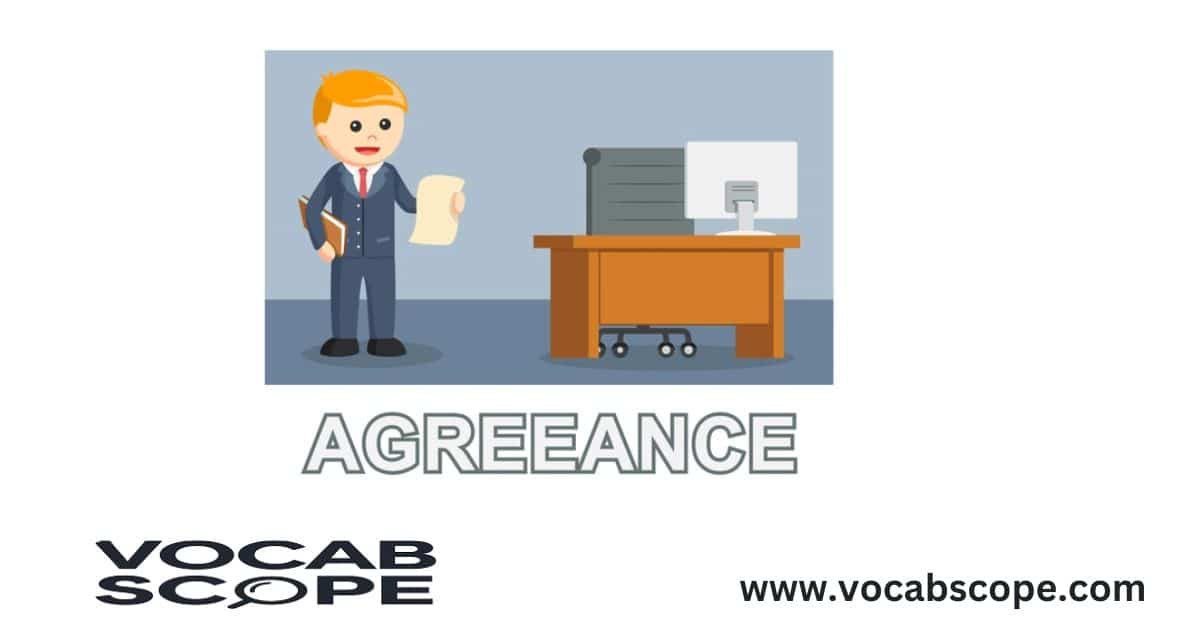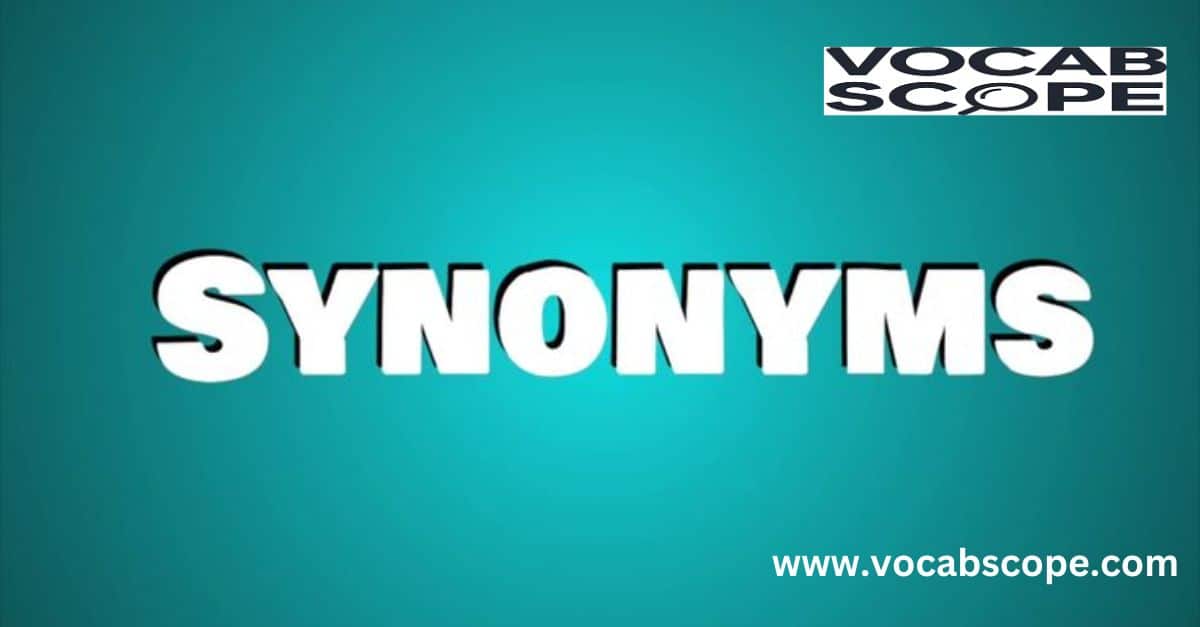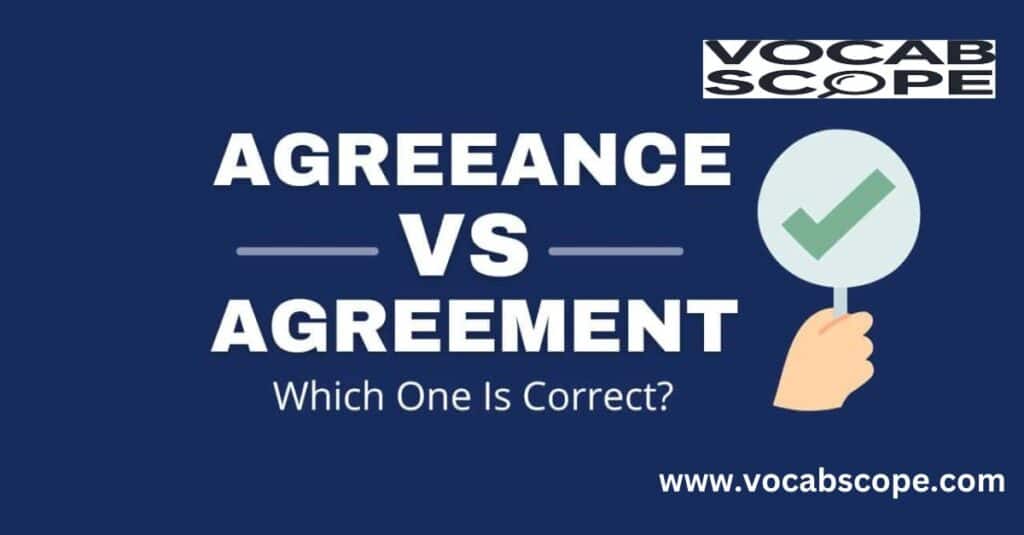“Agreeance vs Agreement: Which One to Use” explores two terms that relate to consensus. Agreeance is less common and often seen as informal. Agreement is widely accepted and used in various contexts.
Choosing the right word can change how people understand your message. Many people mix up these two terms. Knowing the difference can improve your communication skills.
Understanding “Agreeance vs Agreement: Which One to Use” helps clarify discussions. Agreement is clear and suitable for both formal and informal situations. Agreeance, while acceptable, is better for casual conversations.
What do they Mean?
Before we dive into the nitty-gritty, let’s establish a foundation by understanding what these words actually mean.
Agreeance
Agreeance is a noun that refers to the state of agreeing or being in harmony. It’s often used informally and is less common in formal writing or speech.
Agreement
Agreement, on the other hand, is also a noun but with broader applications. It can refer to:
- The act of agreeing
- Harmony of opinion, action, or character
- A formal arrangement between parties
“Agreeance” or “Agreement”: Which One Should Be Used?

Now that we’ve broken down the meanings and origins, which one should you use? The answer is straightforward: stick to agreement in almost every context. Its usage spans both formal and informal settings, while agreeance is best left in historical texts or used for stylistic reasons in creative writing.
Agreeance vs Agreement:
| Aspect | Agreeance | Agreement |
| Definition | An archaic or informal term meaning mutual consent or understanding. | A commonly used term meaning mutual consent or understanding. |
| Usage | Rarely used in modern English; considered outdated. | Widely used in both formal and informal contexts. |
| Formality | Informal; more suited for creative or historical writing. | Suitable for both formal and informal contexts. |
| Context | May appear in historical texts or as a stylistic choice. | Appropriate for legal documents, contracts, and everyday conversation. |
| Modern Acceptance | Generally not accepted in contemporary writing. | Universally recognized and preferred. |
| Example Sentence | “They were in agreeance about the project’s details.” | “They reached an agreement on the project’s details.” |
| Origins | Originates from Middle English, influenced by Old French. | Originates from Middle English, influenced by Old French. |
This table provides a clear comparison between the two terms, highlighting their differences and appropriate contexts.
Using “Agreeance” and “Agreement” in Sentences
To further illustrate the difference, let’s look at examples of each word in context:
Agreeance (Informal):

- The Friends were in agreeance about where to go for lunch.
This sentence works in casual conversation, but it feels outdated. In everyday speech, you’d more likely hear: - The Friends reached an agreement about where to go for lunch.
Agreement (Formal & Informal):

- The Two Companies entered into an agreement to collaborate on The Project.
- The Manager and the employee came to an agreement on the terms of the new contract.
As you can see, agreement fits seamlessly in both formal and informal contexts, whereas agreeance feels clunky and unnecessary.
Read About: Feal vs Feel: Which One Should You Use?
Why is There Confusion?
The confusion between “agreeance” and “agreement” stems from several factors. Let’s break them down:
Breaking Down the Causes of Confusion
- Similar sound: Both words sound alike, leading to confusion in spoken language.
- Shared root: Both derive from the verb “agree,” making them seem interchangeable.
- Regional variations: Some dialects may use “agreeance” more frequently.
- Informal usage: “Agreeance” occasionally pops up in casual speech or writing.
Agreeance vs Agreement: Breaking Down the Causes of Confusion
Why is there confusion between these two words? The answer lies in both their similar spellings and meanings. Both words originate from the verb “agree,” but their usage has diverged over time. While agreement has cemented its place in modern English, agreeance appears occasionally, leading people to wonder whether it’s still a valid option.
Which One is More Acceptable? Here’s why:
In contemporary English, “agreement” is widely accepted and preferred. Agreeance, while not technically incorrect, is seen as an outdated or informal variant. In formal writing, business contracts, legal documents, and professional discussions, you should always opt for agreement. It’s safe, well-understood, and unlikely to raise any eyebrows.
| Word | Formal Usage | Informal Usage | Overall Acceptability |
| Agreement | ✅ | ✅ | High |
| Agreeance | ❌ | ⚠️ (Limited) | Low |
Case Study: Legal Documents
Consider a scenario where The Lawyer drafts a formal contract between two companies. In this case, the proper term to use is “agreement.” The use of agreeance would sound out of place and could even make the document seem unprofessional. In fact, many legal professionals might consider agreeance as archaic jargon, not appropriate for modern legal contexts.
Scenario: Informal Conversations
On the other hand, in more informal settings, like conversations between friends or casual discussions about The Project, the word agreeance might make an appearance. However, even in such situations, agreement is more likely to be used due to its familiarity.
Sure! Here are 10 sentences for each term, categorized as informal for “Agreeance” and formal/informal for “Agreement.”
Using “Agreeance” and “Agreement” in Sentences
Agreeance (Informal):
- There was a general agreeance among friends about which movie to watch.
- After some discussion, we found an agreeance on where to eat dinner.
- The team celebrated their agreeance on the new project idea with high fives.
- Despite their differences, there was an agreeance in the group about the best course of action.
- She smiled, sensing a strong agreeance in the room after the proposal was made.
- The siblings reached an agreeance on how to split the chores for the weekend.
- There seemed to be an agreeance that the blue paint was the best choice for the room.
- During the meeting, everyone expressed their agreeance with the plan presented.
- There was a feeling of agreeance as they shared stories around the campfire.
- The friends showed their agreeance by nodding in unison during the discussion.
Agreement (Formal & Informal):
- We signed a formal agreement to finalize the sale of the house.
- The agreement between the two companies was crucial for the project’s success.
- After negotiating, they reached an agreement on the project timeline.
- The manager sought everyone’s agreement on the new policy changes.
- A written agreement ensures that both parties understand the terms clearly.
- They celebrated their agreement with a toast at the end of the meeting.
- The verbal agreement was enough to move forward with the collaboration.
- In a formal agreement, all conditions should be clearly outlined.
- The friends made a casual agreement to help each other move next weekend.
- The lawyer reviewed the agreement to ensure it was legally binding.
Origins of “Agreeance” and “Agreement” Words
Understanding the etymology of these words can shed light on their usage and acceptance.
Agreement:
- Derived from the Old French word “agrément”
- Entered Middle English in the 14th century
- Has been in consistent use since its introduction
Agreeance:
- First appeared in the 16th century
- Fell out of common use but experienced a resurgence in informal contexts
- Less documented in historical texts compared to “agreement”
You Will Like: Requester or Requestor: Which Spelling to Use?
Synonyms

Agreeance (Note: “agreeance” is a less common, informal version of “agreement”):
- Accord
- Concurrence
- Harmony
- Consensus
- Unison
- Consent
- Approval
Agreement:
- Contract
- Pact
- Deal
- Treaty
- Settlement
- Understanding
- Arrangement
- Concord
- Bargain
- Covenant
- Compact
- Promise
- Commitment
- Accords
Case Study: The Climate Change Debate
Let’s examine how these words might be used in a real-world scenario, such as discussions about climate change.
Environmental activist Jane Doe states: “There’s widespread agreement among scientists about the urgency of addressing climate change. However, when it comes to specific solutions, reaching agreeance can be challenging.”
In this example, “agreement” is used formally to describe scientific consensus, while “agreeance” appears in a more casual context discussing practical solutions.
Ezoic: A Modern Language Conundrum
In the digital age, new words and concepts constantly emerge, challenging our linguistic norms. Take “Ezoic,” for instance – a term related to website optimization. While not directly related to our “agreeance vs agreement” debate, it exemplifies how language evolves.
“The blog owners reached an agreement to implement Ezoic on their websites, hoping to optimize ad revenue.”
Here, “agreement” fits perfectly in a modern, technical context.
Other Commonly Confused Word Pairs
While we’re on the topic of linguistic confusion, let’s briefly touch on other word pairs that often trip people up:
- Totalling or Totaling: Both are correct, with “totalling” being more common in British English.
- Is it Pallette or Palette?: “Palette” is correct for most contexts (color palette, artist’s palette), while “palate” refers to the roof of the mouth or sense of taste.
- Connector or Connecter: “Connector” is more common in American English, while “connecter” is occasionally seen in British English.
A Deeper Dive into Agreement Types
To further illustrate the versatility of “agreement,” let’s explore different types of agreements:
- Verbal Agreements: Often used among friends or in casual business settings.
“The friends made a verbal agreement to split the cost of the vacation rental.” - Written Agreements: More formal and legally binding.
“The lawyer drafted a written agreement outlining the terms of the business partnership.” - Implied Agreements: Based on actions rather than words.
“By accepting the job offer, there was an implied agreement to adhere to the company’s policies.”
The Role of Context in Word Choice
Context plays a crucial role in determining whether to use “agreeance” (in rare, informal cases) or “agreement.” Consider these scenarios:
- Formal Business Setting:
“The two companies reached an agreement on the merger terms.” - Casual Conversation:
“Yeah, we’re in agreeance about the movie choice for tonight.” - Legal Document:
“This agreement, henceforth referred to as ‘the Contract,’ is binding for all parties involved.”
Cultural Variations in Agreement
Different cultures may have varying approaches to agreements. For instance:
- In some Middle Eastern countries, verbal agreements carry significant weight.
- In Japanese business culture, reaching agreement often involves a lengthy consensus-building process.
- Scottish English might be more tolerant of words like “agreeance” in casual speech.
Conclusion
In the debate of Agreeance vs Agreement: Which One to Use? the clear winner is agreement. While agreeance has historical relevance, its usage has faded, leaving agreement as the preferred term in both formal and informal contexts. When in doubt, always go with agreement—it’s universally recognized, widely accepted, and sounds natural in modern English.
So next time you’re writing a contract, an email, or even having a casual chat, remember to use agreement. It’s the safest choice and ensures clear, concise communication. Avoid the outdated agreeance, unless you want to add a touch of archaic flair to your writing.

“Robert Henry is an experienced blogger with a passion for language and education. His insightful posts on Vocab Scope offer readers valuable tips on vocabulary and grammar. With a background in linguistics and a knack for clear, engaging writing, Robert is dedicated to helping others enhance their communication skills.”






